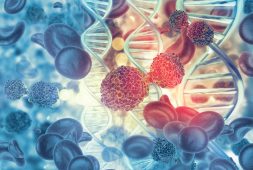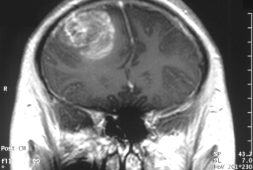
The perfect cure for cancer has yet to be discovered. For the victims, they’re often given two options: chemotherapy or radiation. Both solutions often wreak havoc on the body, and for some, they are unable to take the stress. Nonetheless, they’re left with no option to but to take it.
There’s also the factor on costs. Cancer medicines don’t come cheap. In fact, these usually drain the patient’s bank account. Hence, researchers have been working nonstop to give these sufferers multiple options, one of which may actually cure cancer for good.
There’s hope in the horizon. An Oxford University study has shown that the new drug NUC-7738, which is a novel chemotherapy drug that comes from a fungus, has up to 40 times greater potency for killing cancer cells. This performs better than its mother compound and it comes with very little toxic side effects on the body.
This is a naturally-occurring nucleoside analogue that’s also known as Cordycepin (or 3’-deoxyadenosine). This can be found in the Himalayan fungus Cordyceps sinensis. This has been used in traditional Chinese medicine for hundreds of years now. This was their way to treat cancers and other inflammatory diseases that occur in the body. The breakdown process happens quickly in the blood stream. Hence, only a very minimal amount of cancer-destroying drug should be delivered to the tumor.
In order to enhance the drug’s effectiveness and potency, researchers need to clinically assess its applications as a cancer drug. The biopharmaceutical company called NuCana has developed Cordycepin and applied it in a clinical therapy. They made use of their novel ProTide technology to finally invent a chemotherapy drug that comes with a much improved efficacy rate.
Once the drug is administered into the body, Cordycepin requires transport into cancer cells by a nucleoside transporter (hENT1). Then, it needs to be converted to the active anti-cancer metabolite, known as 3’-dATP with the use of a phosphorylating enzyme (ADK). This is rapidly broken down in the blood system with the help of an enzyme called ADA.
Together, these resistance mechanisms associated with transport, activation, and breakdown work together and result in insufficient delivery of anti-cancer metabolite to the tumor. NuCana have made use of novel ProTide technology to design a therapy that can divert to these resistance mechanisms and create high levels of the active anti-cancer metabolite, 3’-dATP, inside the cancer cells.
At this point in time, ProTide technology is still considered a new approach for delivering chemotherapy drugs into cancer cells. It works by attaching small chemical groups to nucleoside analogues such as Cordycepin. These are then metabolized on the latter part when it has reached the person’s cancer cells. Then, it releases the activated drug.
This new technology has already been successfully employed in the FDA approved antiviral drugs such as Remsidivir and Sofusbuvir that had been commissioned to treat a variety of viral infections such as Hepatitis C, Ebola, and COVID-19.
The results of the study have been made and have been published in Clinical Cancer Research. The findings show that by overcoming key cancer resistance mechanisms, NUC-7738 has an even more cytotoxic activity than Cordycepin when it comes to different of cancer cells that occur.
The Oxford researchers have collaborated together with the ones from Edinburgh and Newcastle. They are now studying and assessing NUC-7738 and are in the Phase 1 clinical trial NuTide:701. This means that they test out the drug in patients with advanced solid tumors that were once resistant to the orthodox forms of treatment that people have become used to.
The early results from the trial have already been studied and they have shown that NUC-7738 is well tolerated by the cancer sufferers. This shows encouraging signs of anti-cancer activity once the medicines have been administered.
Right now, Further Phase 2 clinical trials of this drug are now are in the planning stages. Once done, the studies will be underway. The experts have come together and have formed a partnership with NuCana so that they can to the add to growing number of ProTide technology cancer drugs that are now being developed. This may be the new way to treat cancer, and it may be the better option. This is one piece of good news that people can now look forward to.



